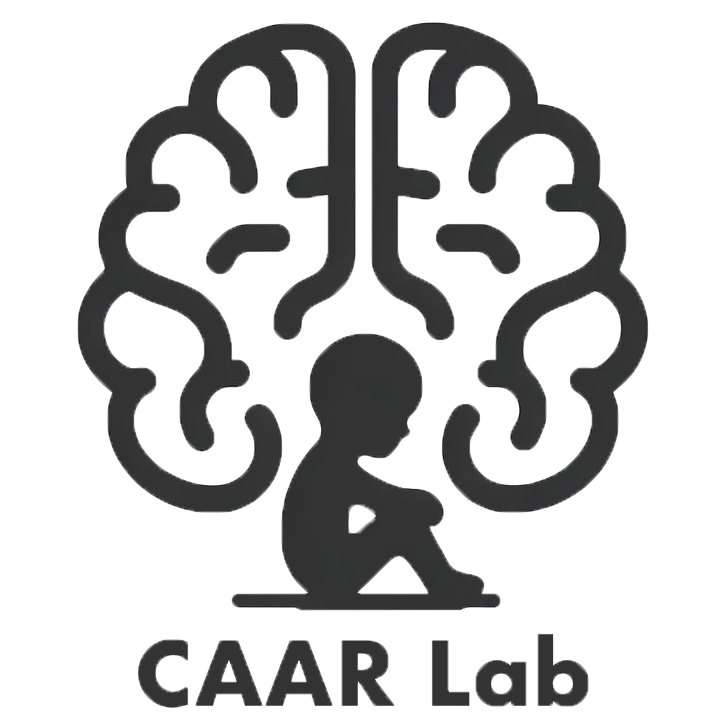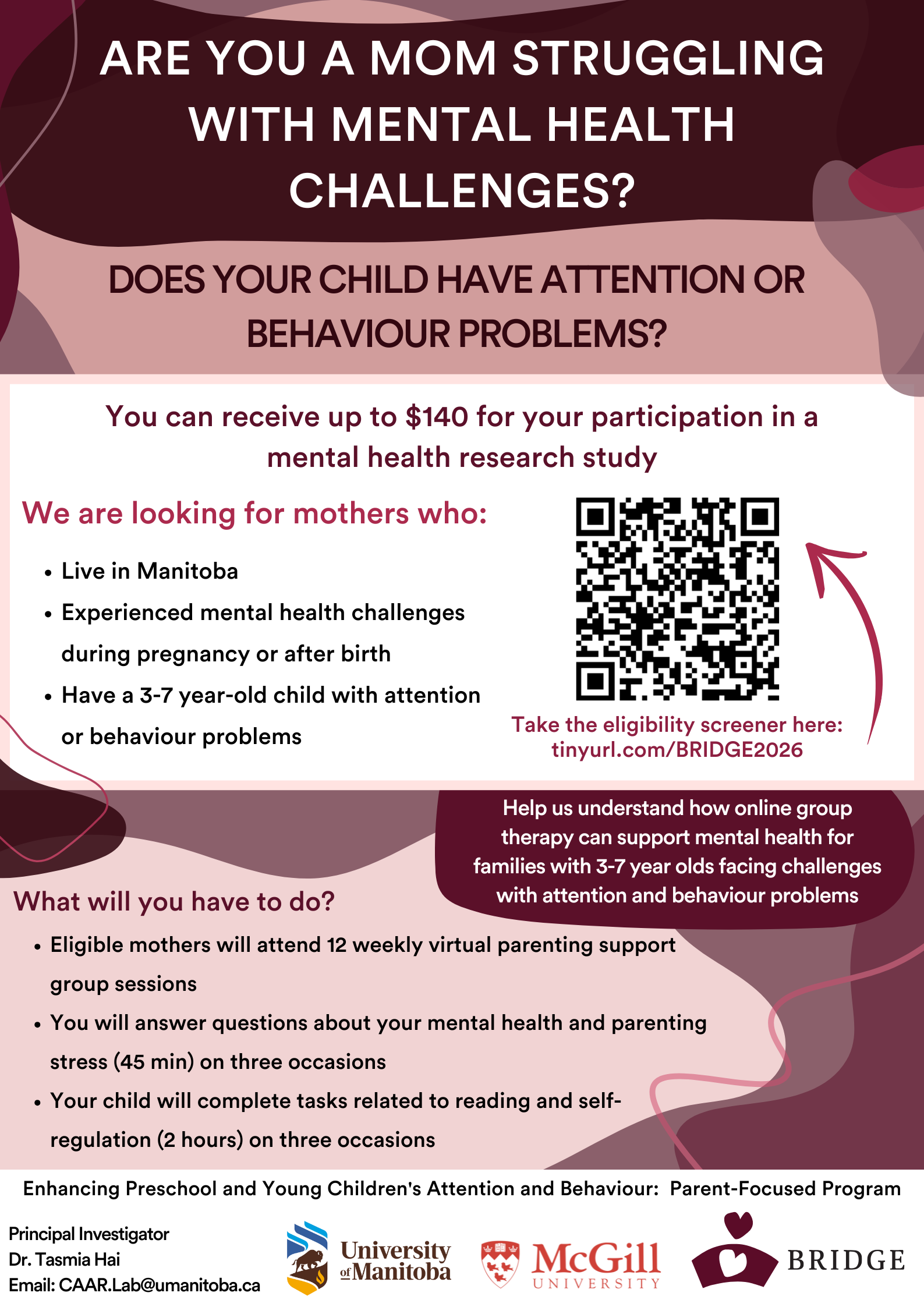Currently Recruiting
Enhancing Preschool Children’s Attention and Behaviour
Social Determinants of Health in Pediatric Neuroimging Research
We are looking for children and parents to take part in a research study to help us better understand how social factors influence child brain development!
You are compensated for your time.
To participate please complete this eligibility survey using the QR code or the following link: https://forms.office.com/r/yqTs87EsdM
Understanding Academic Readiness and Behaviour in Preschool Children through Brain Imaging
Understanding the Needs of Newcomer Families and their Children with Attention and Behaviour Problems: A Cross-Cultural Study
Canada is a country with many different kinds of people. Some people come to Canada from other countries to live here. Some come because they had to leave their home countries, like refugees. Moving to a new place can be tough. There's something called the "Healthy Immigrant Effect" which says that immigrants often have good experiences when they move here. But it's not always easy. Children who move here might find it hard to adapt to school or deal with mean behavior because of their diversity and culture. Schools can help families fit in, but sometimes they forget to involve parents, and this can affect how kids do in school. It's a big challenge for families to handle these tough situations.
Description
This study looks at the experiences of families who are new to Canada and tries to understand them better. We will work with new immigrant families to learn about the problems kids might have with paying attention or behaving well. We hope this research helps create programs that understand different cultures and help families deal with attention and behavior problems in children. We want to make schools a fair and welcoming place for all kids, following the idea of caring for children's health and happiness that leaders around the world believe in.
What We Do
Mental health programs tailored to meet the needs of individuals from diverse socio-cultural backgrounds are rare. Most existing mental health programs are not developed and implemented specifically to address the unique needs of immigrants, refugees and people of colour. Additionally, there are barriers like limited information about mental health services and their benefits. Sometimes, discrimination and prejudice can hinder individuals from seeking mental health services.
Description
What We Do
The proposed research will invite clinicians from existing mental health programs currently supporting the mental health needs of people from diverse sociocultural backgrounds. The participants will be asked to share information about their organization, specific program design and content, observed barriers, program adaptation, and recommendations for future programs through conversational interviews. Additional information regarding their demographics will be collected.
Mapping the Neural, Cognitive and Academic Mechanisms of Family Focused Interventions in ADHD
Supported by a new-recruit supplement of the Healthy Brains Healthy Lives (HBHL) initiative at the McGill University, this project will examine the neuroanatomical and neurobiological underpinnings of neurodevelopmental disorders using magnetic resonance spectroscopy (MRS) and structural and functional magnetic resonance imaging (MRI) techniques. By analyzing brain chemistry, brain connectivity, and structural integrity, the aim is to identify unique neurodevelopmental patterns and biomarkers that may differ across diverse populations.
What We Do




